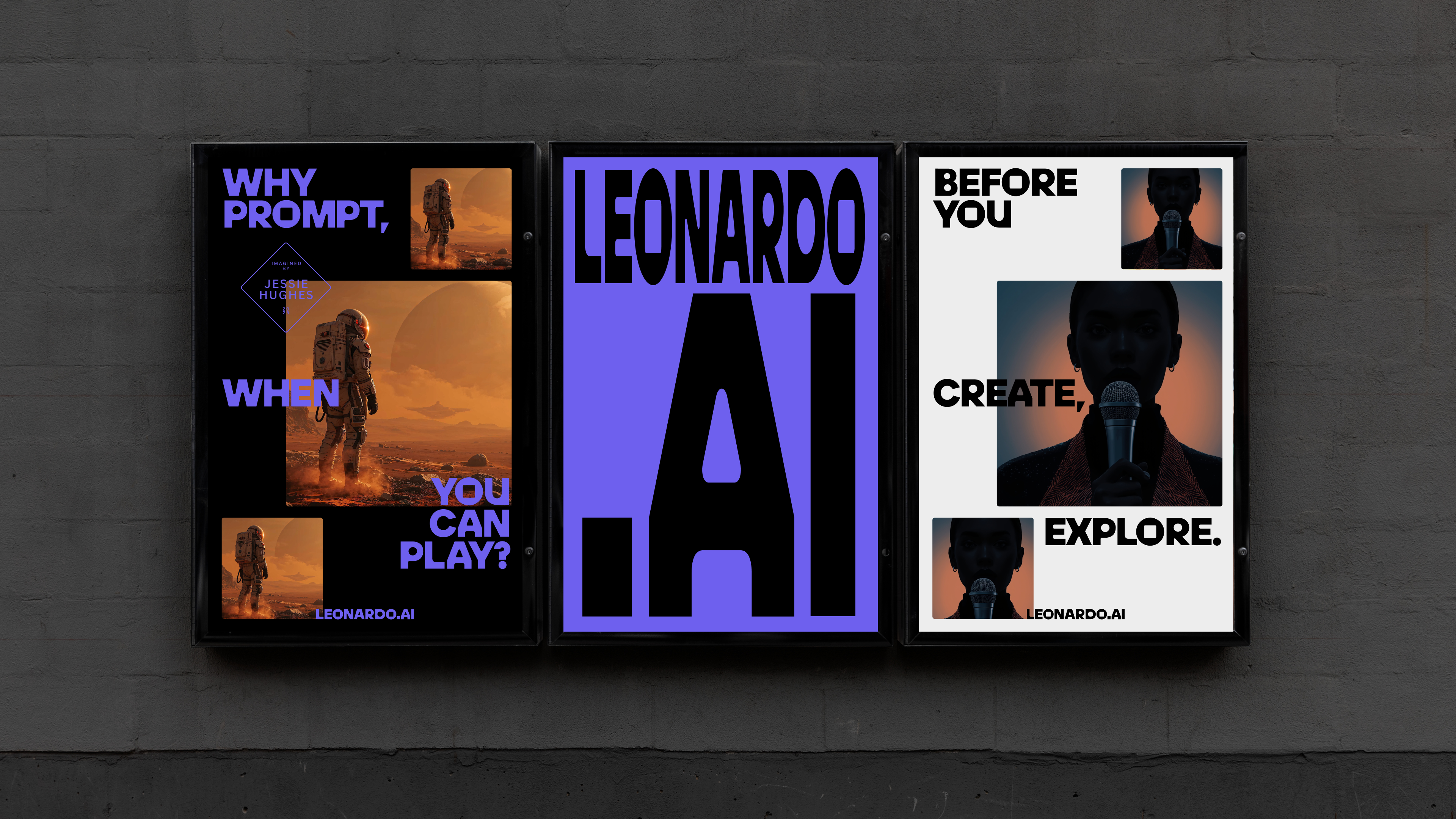How to get a head start in animation
After completing their first short film, students from Bournemouth NCCA reveal what they've learned.
Sign up to Creative Bloq's daily newsletter, which brings you the latest news and inspiration from the worlds of art, design and technology.
You are now subscribed
Your newsletter sign-up was successful
Want to add more newsletters?

Five times a week
CreativeBloq
Sign up to Creative Bloq's daily newsletter, which brings you the latest news and inspiration from the worlds of art, design and technology.

Once a week
By Design
Sign up to Creative Bloq's daily newsletter, which brings you the latest news and inspiration from the worlds of art, design and technology.

Once a week
State of the Art
Sign up to Creative Bloq's daily newsletter, which brings you the latest news and inspiration from the worlds of art, design and technology.

Seasonal (around events)
Brand Impact Awards
Sign up to Creative Bloq's daily newsletter, which brings you the latest news and inspiration from the worlds of art, design and technology.
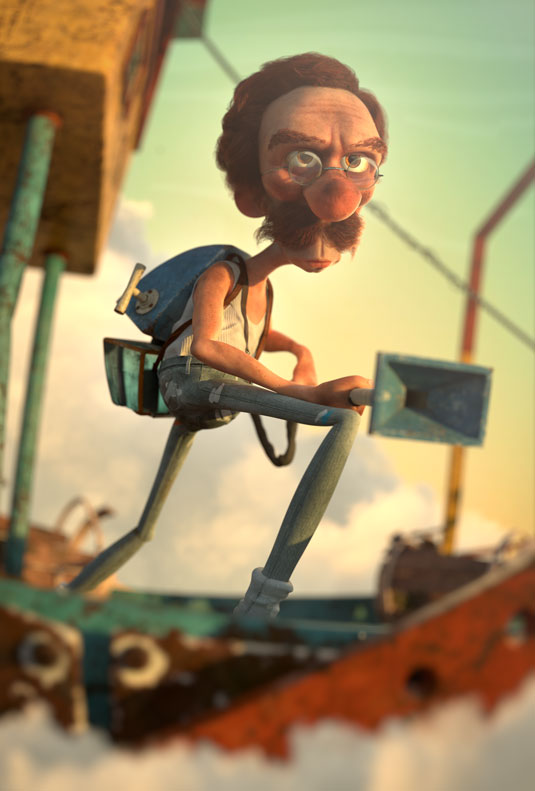
Taking a course won't make you a great 3D animator, but enrolling on a degree course somewhere like the National Centre for Computer Animation might help you on your way. We caught up with a team of undergrads at NCCA to discuss how valuable their studying has been after the completion of their first short, Internet Explorer.
NCCA alumni have worked on everything from Avatar and Harry Potter to Inception and Gravity, but what is it really like to study at Bournemouth's prestigious animation school? Zeno Pelgrim's is currently in his second year of the Computer Animation Arts BA and believes that his university course is a great way to expand horizons.
Student digs
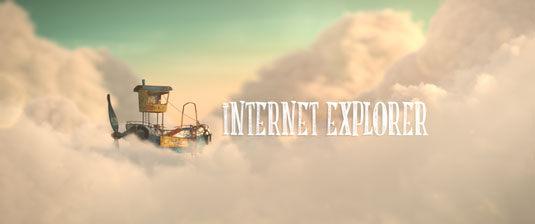
Zeno says, "the goal of university is to teach you to become a critical thinker about your subject of interest, whilst providing you with the necessary skills to dig deep into that. And when doing this, people discover and create new things like new workflows, new tools and new methods."
Academic courses, he says, may not be the best value for money if you are purely looking to learn basic skills, but to delve deep into why you love animation, university can expand your knowledge, in turn helping you to develop yourself and your skills.
"I absolutely love how making this one-minute animated short brought the best out of all of us. In the end we're just four people with pretty different interests put together. It's incredibly inspiring to see what we came up with by just combining our interests and working hard!"
Give what you get
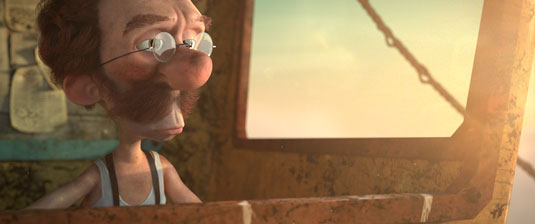
Ramon Blanquer worked on visual effects for Internet Explorer along with Zeno, Angelina Sun and Preet Katta as part of their second year project. Ramon studies Computer Visualisation and Animation at NCCA, and explains that he has learned a lot about the technical side:
"We are progressively getting more maths (Analytic Geometry) and programming (C++, OpenGL) and also the availability for us to put our hands on specialised areas and spend time researching."
Sign up to Creative Bloq's daily newsletter, which brings you the latest news and inspiration from the worlds of art, design and technology.
He continues, "Maybe we haven't digged deep into tools, but we have been given an accurate technical skillset. With this transferable knowledge we are prepared to solve problems we come across in CGI, which is software-independent, that's the best thing."
Forging a future

Zeno is confident that his course will lead him on to great things. He has been in contact with the lead recruiter at Sony Imageworks, and she told him that they have never been disappointed by hiring an NCCA graduate.
"She told me Bournemouth has an incredibly good reputation, and graduating there definitely makes a difference on your CV. Last summer I was also selected by MPC as their summer modeling intern, and however I don't know this for sure, at the time I felt like I received that chance because of the good relationship between the London studios and Bournemouth (among other factors obviously)."
A short step
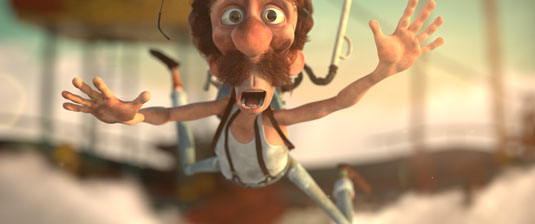
Compositor, Preet Katta learnt a lot from the student short: "Whilst I have gained a lot of fundamental skills from the course so far, I found that working with a one-minute animated short demands you discover new ways to tackle certain problems that are not so straightforward.
"Seeing how assets are produced and take form amongst the pipeline is an invaluable experience, and puts these key skills into context whilst developing them at the same time."
Student support
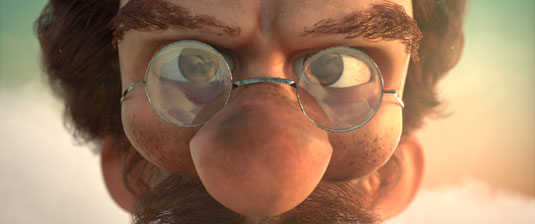
Internet Explorer's animator, Angelina Sun says she learnt through teamwork, "I had primarily worked in 2D before starting the course, so initially I was a bit overwhelmed with the amount of work that goes into producing a 3D piece. The process is a lot different too, but I quickly adapted with the support from my wonderful course-mates.
"I feel a lot more confident in my abilities after producing 'Internet Explorer', although there is still much to improve on, and always something I could have done better. I'm very excited for the projects to come and would like to see how far I can push myself."

Is experience necessary?
Even without extensive knowledge of software prior to the course, Ramon has been able to pick up everything quickly: "I come from a Science and Technology background, but also felt strong interest towards the film industry.
"So I thought it could be great to unify maths and physics with filmmaking, that's what VFX are about! Other people come from fine art backgrounds which also helps a lot for the artistic judgment on our work. They don't really ask for 3D knowledge when entering the uni, they prefer you to have good logics, basic drawing skills and easy maths."
Top tips
Personal projects
"Do personal projects! Employers and recruiters see showreels with those same university assignments all the time. They need to see that you've got dedication that extends beyond getting assignments in on time.
By doing these personal projects you just learn so much more. There's nothing just like discovering things yourself. It puts you ahead of everyone else and in an industry as competitive as ours - that's something worth doing!" says Zeno.
Tell stories
"Storytelling is essential. There is still so much I have to learn about that. It's something no course can fully teach you – you have to practice, fail, stand back up, continue and repeat," adds Zeno.
"So if anything, I'd advise other students to spend time doing this. What makes a story a good story? What are the things to avoid? How do you get other people to feel for a character? These are the things that actually count.
"All the incredibly interesting technical aspects are just there for the visual quality of your story. There's nothing more important than Pixar's motto – Story is King!"
To see what you could learn, check out the team's finished project:
For more information on the courses at Bournemouth click here.
Words: Alice Pattillo
Like this? Read these!
- How to land your dream job in VFX
- How to build an app: try these great tutorials
- Create a 3D female warrior in 10 steps

The Creative Bloq team is made up of a group of art and design enthusiasts, and has changed and evolved since Creative Bloq began back in 2012. The current website team consists of eight full-time members of staff: Editor Georgia Coggan, Deputy Editor Rosie Hilder, Ecommerce Editor Beren Neale, Senior News Editor Daniel Piper, Editor, Digital Art and 3D Ian Dean, Tech Reviews Editor Erlingur Einarsson, Ecommerce Writer Beth Nicholls and Staff Writer Natalie Fear, as well as a roster of freelancers from around the world. The ImagineFX magazine team also pitch in, ensuring that content from leading digital art publication ImagineFX is represented on Creative Bloq.
